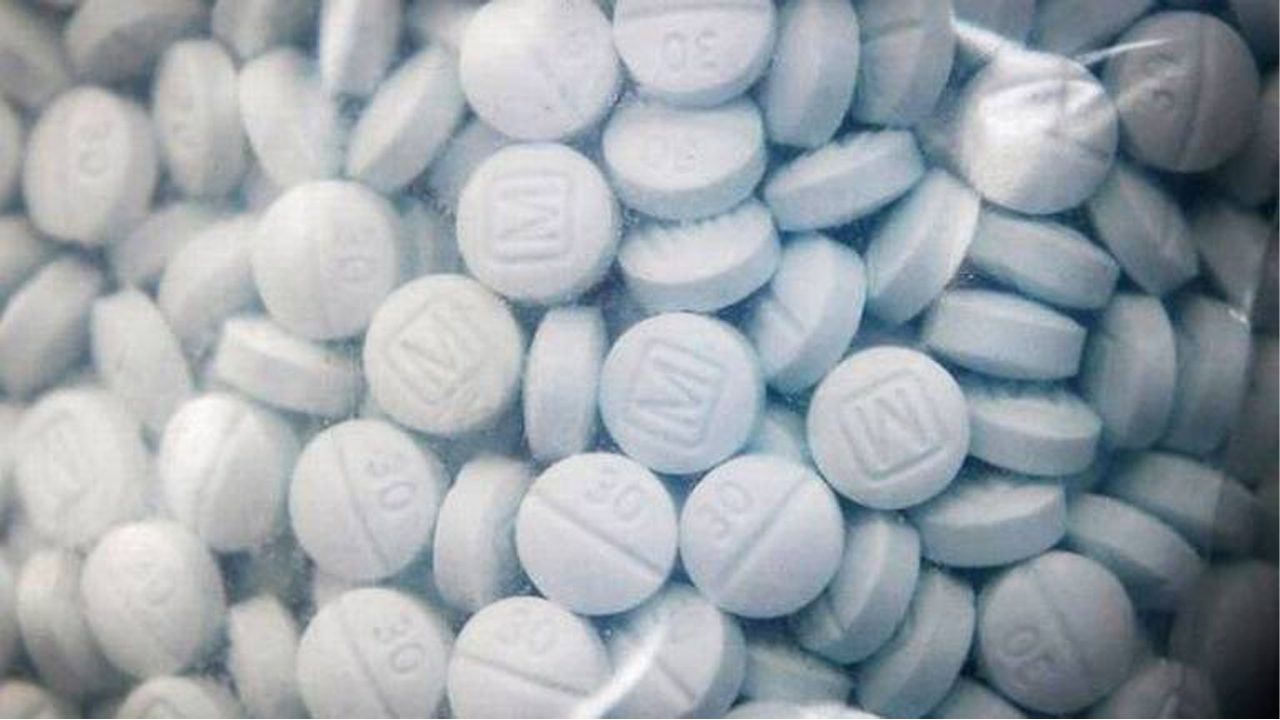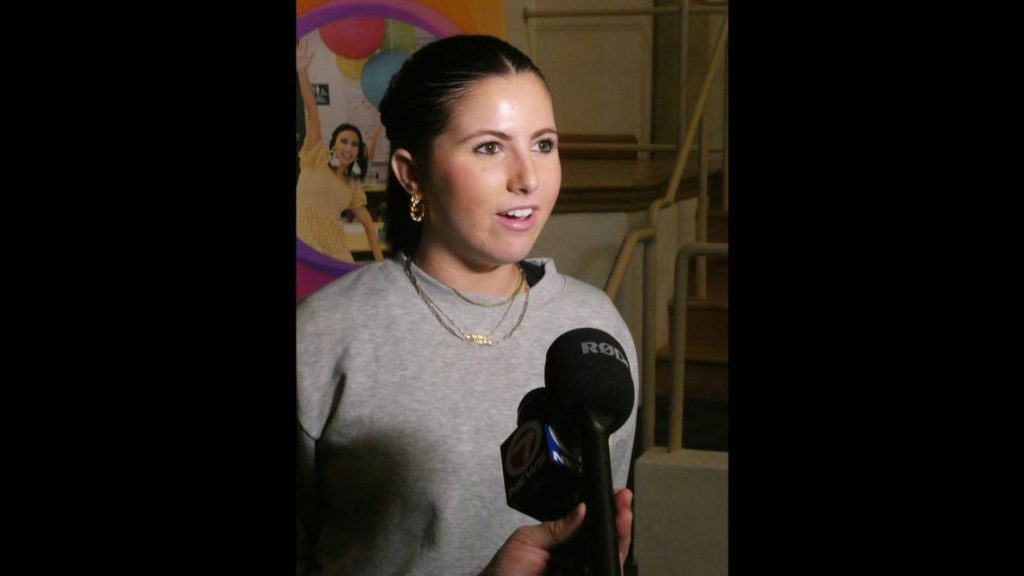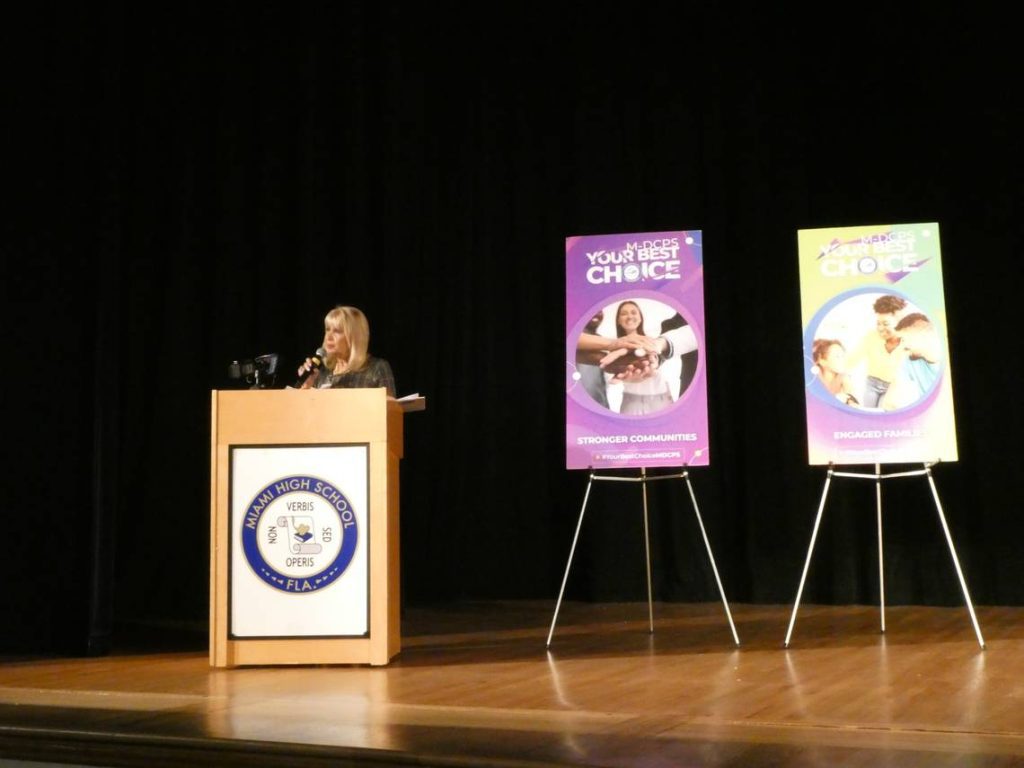
Fentanyl overdose dangers are rising. What Miami-Dade schools are doing to cut the risk
All public schools are on a mission to warn students about the danger.
Miami Herald | By Michelle Marchante | November 2, 2023
All Miami-Dade County public schools are now stocked with naloxone, the medication that reverses opioid overdoses. Also, “Say no to Fentanyl” assemblies will begin at high schools across the county this month as part of the district’s effort to combat the opioid crisis in South Florida.
“We have a crisis in our country that is absolutely unacceptable. It is taking the lives of our youth, our future leaders of tomorrow, and we can no longer sit back and just accept it,” Miami-Dade School Board Chair Mari Tere Rojas said Thursday at a news briefing at Miami Senior High School announcing the start of the district’s fentanyl awareness campaign.
“We need to be proactive in lieu of being reactive,” she said. “And therefore, we need to be part of the solution, and not part of the problem.”
From 2016 to 2022, the use of opioids in Miami-Dade County rose 640%. And opioid use among kids and teens is rising across South Florida, but is highest in Miami-Dade, Lisa Keeler, regional director for Project Opioid South Florida, told the Miami Herald earlier this year.
Both Rojas and Miami-Dade School Police Chief Ivan Silva say the district, the third largest in the nation, has not had any fentanyl overdoses on campus. “We’re trying to be one step ahead of it … and detect it before it occurs,” Silva said.
Stella McLaney, 17, is a senior at Miami Beach Senior High and is involved in a new club to teach classmates about the dangers of fentanyl and fake pills. She carries Narcan in her school bag. Whenever she goes to a party, she takes it in her purse, just in case someone needs it.
“It’s just a layer of protection, “ McLaney said. “You wear your seat belt not because you’re gonna get in a car accident; it’s … to keep yourself safe. If you have a peanut allergy, you’re gonna carry an EpiPen. … It’s in case of emergency and that’s what Narcan is.”

Stella McLaney, 17, a senior at Miami Beach Senior High who is going to be one of the students involved in a new club that is set to launch at schools across the district to teach classmates about the dangers of fentanyl and fake pills, thinks every student should have Narcan in their bag. Michelle Marchante mmarchante@miamiherald.com
THE OPIOID CRISIS
The country’s opioid crisis began with prescriptions in the 1990s. The crisis came to a head last year with a nearly $6 billion bankruptcy settlement with Purdue Pharma and its owners for their deceptive practices in selling OxyContin.
The crisis is now in its “fourth wave,” largely fueled by the powerful, addictive synthetic opioid fentanyl that is often mixed in with other drugs, usually with buyers unaware. The drug can be found in pills, and sometimes even vapes. The U.S. Supreme Court in August blocked Purdue Pharma’s bankruptcy settlement and is set to take up the case in December.
Fentanyl is a powerful synthetic opioid that is prescribed to treat patients with severe pain although it’s also sold illegally and mixed with other drugs, including cocaine and heroin, making it more deadly. Fentanyl is up to 50 times stronger than heroin, 100 times stronger than morphine and is one of the most common drugs involved in overdose deaths.
And while adults are the ones most affected by opioids, federal data show that the rate of overdose deaths more than doubled among kids and teens ages 10 to 19 during the first two years of the COVID-19 pandemic. That’s despite a decrease in illicit drug use during 2019-2020. This suggests that adolescents were exposed to more potent drugs, rather then using more drugs, according to a study published in the U.S. Centers for Disease Control and Prevention Morbidity and Mortality Weekly Report in December 2022.
“Pills can kill, one pill can kill,” within minutes, said School Chair Rojas, who in February proposed the naloxone measure, which received unanimous support among her colleagues on the School Board.

Miami-Dade School Board Chair Mari Tere Rojas speaks during a news conference on Thursday, Nov. 2, 2023 announcing the district’s upcoming fentanyl awareness campaign. Michelle Marchante mmarchante@miamiherald.com
HOW NALOXONE WORKS
Naloxone, the medication that reverses opioid overdoses, is administered like a nasal spray. Earlier this year, the U.S. Food and Drug Administration gave the OK to two naloxone nasal sprays — Narcan and RiVive — for people to buy over the counter in drug stores, supermarkets and gas stations. When given to someone who is overdosing, the medication can temporarily reverse the opioid’s effects, hopefully giving first responders enough time to arrive and take the person to the hospital for treatment. If the person is not overdosing, the spray won’t cause any side effects.

Gregory Swan, founder of “Fentanyl Fathers”, holds a nalaxone medication in his hand while talking at a news conference at Miami Senior High on Nov. 2, 2023 about the importance of raising awareness about the dangers of fake pills and fentanyl. Michelle Marchante mmarchante@miamiherald.com
“It’s almost like having an EpiPen,” Keeler told the Miami Herald. “If someone goes into an allergic reaction from peanut or something like that in the cafeteria, they have EpiPens available so that right away, they can give them an epi shot, and the child will not die of that allergy.”
Each school resource officer at all public schools in Miami-Dade were given two naloxone sprays and were trained over the summer on how to administer the medication, Silva said. All schools were stocked with the medication for the start of the school year. So far, none of the officers have had to administer the medication, the school police chief said.
The school district obtained the free naloxone sprays through the Florida Department of Health Helping Emergency Responders Obtain Support (HEROS), a state program that supplies the medication to first responders. Keeler on Thursday said the Broward and Palm Beach public school districts are also considering adding the medication to campuses.
WHAT COMES NEXT FOR THE FENTANYL CAMPAIGN?
As part of the district’s fentanyl awareness campaign, the district is collaborating with organizations including Fentanyl Fathers and Project Opioid South Florida — and will start hosting assemblies at high schools this month to teach students about the dangers of fentanyl, how to recognize signs of overdoses, how to administer naloxone and hear from families who have lost loved ones to fentanyl overdoses. Information on fentanyl overdoses are also available on The Parents Academy online portal in English, Spanish and Haitian-Creole.
The school district also is working on presentations about the dangers of fentanyl for younger students. Rojas said the district is planning to train other school personnel, such as principals, on how to administer the medication.

Gregory Swan, founder of “Fentanyl Fathers” and Lisa Keeler, the regional director for Project Opioid South Florida, speak during a news conference on Thursday, Nov. 2, 2023 at Miami Senior High about fentanyl overdoses. Michelle Marchante mmarchante@miamiherald.com





